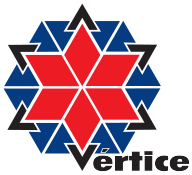


During Elementary School, students are encouraged to take on responsibility and develop autonomy. In this stage, teachers use the school syllabus to help students build discipline and study and work habits, as well as develop the concept of “knowing to do”, without losing sight of social relationships based on respect, empathy, and mutual collaboration.
With friendliness, affection and a very close interaction with students, the Educational Guidance Department plays a fundamental role in this process. Guidance, targeted activities and individual support help students organize their school supplies, such as notebooks and backpack, solve problems, and manage their time and timetable. This work is carried out in partnership with families and teachers, based on strategies that consider the individuality of each child.
These competencies and skills will allow students to take the lead in the learning process throughout their academic journeys.


The day-to-day lives of Elementary School students at Vértice are marked by different learning experiences involving regular subjects of the curriculum, and other fields of experience, such as Arts, English immersion, Music, Cooking, Social and Emotional Education, Storytelling, Writing, Handicraft Creation, Expressiveness, Technology, and Workshops.
This broad range of activities, associated with the use of multimedia tools, is conducive to the full development of students and their potential, with students feeling engaged and motivated to learn and create. This is what happens, for example, in Workshop classes, where the concepts covered gain a new dynamic perspective, with quizzes, challenges and knowledge competitions, also favoring group work.
In Storytelling and Expressiveness, as well as in Music and Arts, children structure their orality, interpretation, creativity, body notion, artistic repertoire and experience different languages of expression.
In Technology, principles of logic, programming, care and ethics in digital media are introduced. In addition to the use of technological resources, students also have hands-on activities, in which they learn about tools, electrical and electronic components, explore materials and build small objects, helping them understand physical, scientific and logic principles.


Inside and outside the classroom, all these experiences take place in an environment designed to stimulate children’s curiosity, autonomy and dynamism. A new Elementary School building was inaugurated in 2019 aligned with the new demands of a connected world, encouraging creativity and interconnectivity. A do-it-your-self space, multicultural room, modular classrooms, sports court, and other environments make up a universe of possibilities.


Interdisciplinary projects connect different fields of knowledge and areas, which allow students to engage in meaningful learning by focusing on problem-solving, reflecting on relevant topics, and engaging with the entire school syllabus. Teachers coordinate the entire process, acting as facilitators of knowledge building and skill acquisition.
The initiatives cover themes such as environmental education and sustainability, cultural exchange, citizenship, future perspectives, creative economy, financial education, entrepreneurship, among other aspects of learning, and social and emotional engagement.
The projects also help students think about how teamwork emphasizes the importance of respecting diverse opinions, having a collaborative spirit, as well as organizing and setting goals and tasks for each member. Teachers, who have followed the entire process, conduct a final assessment. Students also carry out an assessment and rate their individual and group performance through self-criticism. This dynamics stimulates discussion, reflection and a sense of responsibility, key elements in the next stage of their school journey: Middle School.
